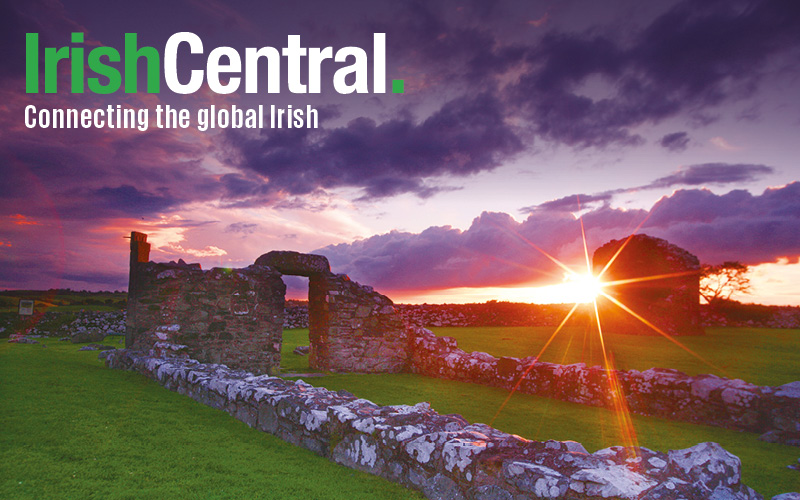Hurricane Matthew has hit land at Florida, with 140mph winds leaving more than 600k homes and businesses without power. So far the hurricane, unlike any seen in the region for decades, has killed over 300 people as it ripped through Haiti, Jamaica, the Dominican Republic and the Bahamas.
Over the past three days, 31 people have been subject to evacuations, some mandatory some voluntary, along the coast from North Carolina down to Florida. Among those experiencing the terror of this historic storm are thousands of Irish. Michael Wood, an Irishman living in St. Augustine, was one of those evacuated. He told the RTE’s Morning Ireland that he now fears his home will be gone when he returns. He said “We got in the car and headed out west. The first free hotel we could get was 300 miles away.”
Hurricane Matthew, which was a Category 4 storm and has now moved to a 3 classification, has brought winds of up to 140mph, tornadoes, 12-feet storm surges, and 15 inches of rain. President Barack Obama has declared a state of emergency for Georgia, Florida and South Carolina, home to 26 million people.
Wood told the Irish radio station about the sense of panic in the area since the news of Hurricane Matthew struck. “When they started reporting it on the news we had to go to five or six gas stations to get gas, all the food stores were running out of food so we had to go to a couple of stores,” he said.
“By Wednesday morning everything was cleared so if you didn’t have your supplies then you were stuck.”
The National Weather Service has warned that some places hit by Hurricane Matthew could be uninhabitable for "weeks or months" and the effects of the storm will be unlike any hurricane in decades.
Weather experts are now watching the unpredictable path of the Hurricane which they say could make an enormous difference to its impact. CNN meteorologist Derek Van Dam said “The exact path is so critical. Miles and kilometers really count, because if it wobbles westward by say 30 miles, it brings those strong winds onshore.”
UPDATE: NHC says western eyewall of #HurricaneMatthew brushing portions of Florida's northeast coast. More here: https://t.co/A4JKhy8nu4 pic.twitter.com/y2F1rHKvAp
— Reuters Top News (@Reuters) October 7, 2016
Another Irishwoman in Florida, Cathy Tobin, wrote a piece for the Irish Times, on Thursday, confessing that how after years in the southern state she has become “blasé” previously about the massive storms. Now, she wrote that she was “waiting for a storm which our state governor earlier announced, “. . . will kill you”. My Weather Channel app sent me a notification a few hours ago which said, “Get Out Now”. Yet, I’m trying to remain optimistic.”
As the Hurricane hits land on the main land the Caribbean islands are reeling after the major storm left destruction in its wake. Ireland’s Minister for for Foreign Affairs and Trade Charlie Flanagan and Minister of State for the Diaspora and International Development Joe McHugh announced, on Friday, that Ireland will provide humanitarian aid to Haiti in response to the devastation.
The hurricane left at least 300 people dead in Haiti, a number that may rise as the authorities re-establish contact with regions cut off by the storm. Emergency relief operations, led by the Haitian Government, are hindered after the collapse of a bridge which cut off the only road linking Port-au-Prince to the southern Haiti peninsula.
#HurricaneMatthew update: Hundreds dead in Haiti storm disaster https://t.co/OSKISO9rJE pic.twitter.com/IFTIKQhbqn
— BBC News (World) (@BBCWorld) October 7, 2016
Flanagan said “The damage and destruction caused by Hurricane Matthew in Haiti in recent days is another devastating blow to communities previously affected by the earthquake in 2010. Initial rapid assessments indicate that over 350,000 people are in need of humanitarian assistance and some 20,000 people have been displaced from their homes. There are increasing concerns that flooding will exacerbate pre-existing epidemics such as cholera, dengue fever and Zika. The death toll continues to rise and we know that many thousands of people have lost their homes and possessions in the aftermath of the strongest storm to hit the region in a decade.
“We are monitoring the situation closely in coordination with our partners on the ground. Assessments of the damage and requirements are ongoing and Ireland is prepared to provide humanitarian assistance once a clearer picture of humanitarian needs has emerged. We will work with our NGO partners to respond appropriately.”
Minister McHugh added “Ireland has been a strong supporter of Haiti since the devastating earthquake of 2010, and the country has faced a number of disasters in recent years to which we have responded. Currently, we are working with our partners on the ground to get a sense of the priority needs which are likely to be shelter, water and sanitation and health.
“Irish Aid is currently arranging an airlift of emergency relief supplies into Haiti from Ireland’s pre-positioned stockpiles stored at the UN Humanitarian Response Depot in Panama City. These supplies, including tarpaulins and rope for shelter, blankets, soap and mosquito nets, as well as jerry cans and water tanks, will be distributed to 1,000 families in La Gonave by Concern Worldwide”.
Concern’s 130 Haiti-based staff have been giving out essential items and working closely with other aid agencies to help those living through the emergency. Country Director Nellie Kingston said “The situation here is worsening by the day as more bodies are found and the level of damage caused to buildings, homes, roads, water and other services are realized.”
She added “For us, now that the storm has passed, the real work begins.”




Comments